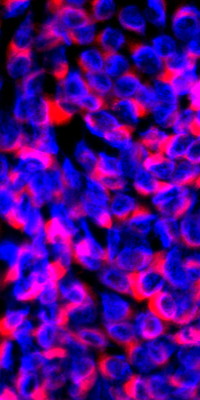Bovine viral diarrhea is a viral disease of cattle and other ruminants that is caused by the bovine viral diarrhea virus (BVDV). BVDV is a member of the pestivirus genus.The clinical signs of BVDV infection are highly variable, with a spectrum ranging from few to no signs to very severe and ultimately, death.
Transmission:
BVD is transmitted in a number of ways. Either through a congenital infection of the fetus or after birth. Congenital infections may cause resorption, abortion, stillbirth, or live-birth. Congenitally infected fetuses that survive in utero infection (i.e., the live-births) may be born as BVDV-infected calves. The virus is also transmitted via direct contact, bodily secretions and contaminated fomites, with the virus being able to persist in the environment for more than two weeks.
Symptoms:
In adults, clinical signs are highly variable. Signs of acute infection include fever, lethargy, loss of appetite, ocular dishcharge, nasal dischargem oral lesions, diarrhea and decreasing milk production. Chronic infection may lead to signs of mucosal disease and even death.
In calves, the most commonly recognised birth defect is cerebellar hypoplasia. The signs of this are:
- Ataxia/ lack of voluntary coordination of musle movements;
- Tremors
- Wide stance
- Stumbling
- Failure to nurse


